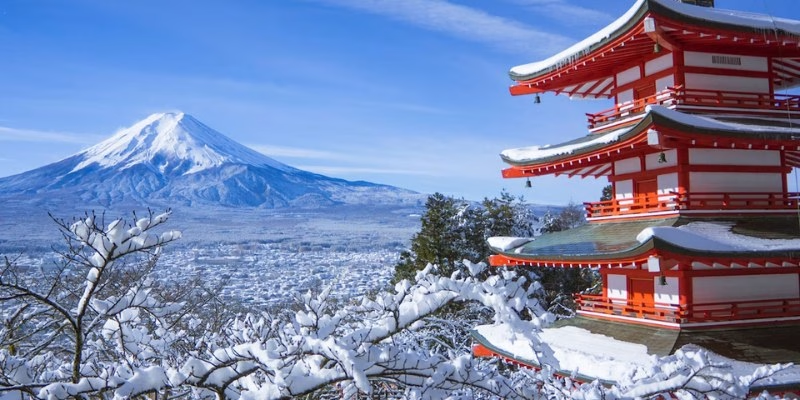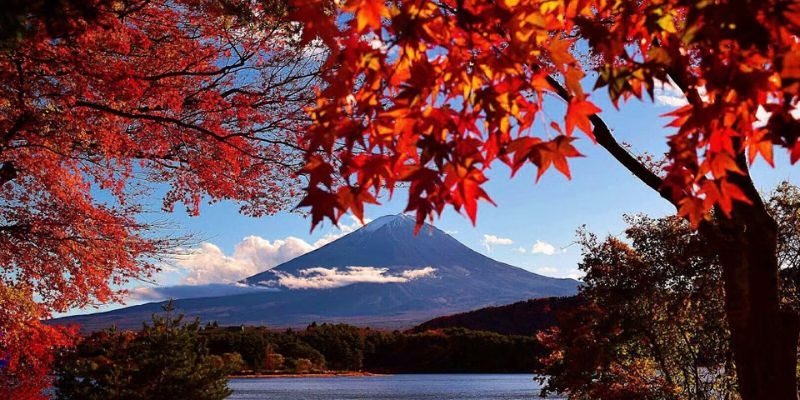If you’ve ever walked through Tokyo’s vibrant streets or found calm in Kyoto’s timeless temples, you may have wondered: can Americans buy real estate in Japan? The answer is yes, and the process is often simpler than expected. U.S. citizens enjoy the same property ownership rights as Japanese nationals, making Japan an appealing destination for both living and investing. Whether it’s a stylish apartment in Tokyo, a countryside retreat, or a rental property for steady income, opportunities are abundant. This guide will walk you through the essentials, including legal requirements, tax considerations, financing options, and practical advice for a smooth buying experience.
Why Americans Can Freely Buy Japanese Real Estate
Unlike many countries that restrict foreign ownership, Japan maintains an open-door policy for international property buyers. As an American citizen, you enjoy the exact same property rights as Japanese nationals, with no citizenship or residency requirements standing in your way.
This welcoming approach stems from Japan’s commitment to international investment and economic cooperation. The US-Japan relationship has fostered decades of mutual trade and investment, creating a stable foundation for American property ownership that’s protected by both countries’ legal systems.
You don’t need a Japanese visa, work permit, or even to set foot in the country to legally own property there. Many Americans successfully purchase Japanese real estate remotely, managing their investments from thousands of miles away.

Understanding Your Ownership Rights as an American
When you buy property in Japan as a US citizen, you’re getting full freehold ownership. This means you can:
- Buy, sell, or transfer the property freely
- Rent it out for income
- Renovate or modify the building (subject to local regulations)
- Transfer it to your beneficiaries via inheritance
- Use it as collateral for loans
Your ownership is registered in Japan’s robust legal system and protected by the same laws that safeguard Japanese property owners. Once registered, your property rights are secure and legally enforceable.
The only exception involves certain agricultural land, which requires special permits regardless of nationality. For most residential and commercial properties Americans typically purchase, no special permissions are needed.

Popular Property Types American Buyers Choose
Urban Investment Properties
Tokyo and Osaka lead the pack for American investors seeking rental income and potential appreciation. Modern condominiums in these cities attract both local renters and international tenants, providing steady cash flow opportunities.
Many Americans focus on smaller units near universities, business districts, or transportation hubs. These properties often deliver rental yields of 3-6% annually, competitive with many US markets while offering portfolio diversification benefits.

Resort & Lifestyle Residences
Japan’s natural beauty and unique culture draw Americans seeking second homes or retirement properties. Popular choices include:
Mountain Retreats: Properties near ski resorts like Hakuba or Niseko offer both personal enjoyment and short-term rental potential during peak seasons.
Traditional Houses: Renovated machiya (traditional wooden townhouses) in historic areas provide authentic Japanese living experiences.
Rural Properties: Countryside homes offer affordability and tranquility, though they require more hands-on management.
Business-Oriented Property Opportunities
Experienced American investors often explore commercial properties, including small apartment buildings, retail spaces, or mixed-use developments. These typically require larger capital investments but can provide substantial returns in prime locations.

Your Step-by-Step Purchase Journey
Step 1: Plan and Prepare
Start with clarifying your aims and outlining your budget. Are you seeking investment income, a vacation home, or a future residence? Every decision you make next will be directed by your objectives.
Research potential areas using online resources and Japanese real estate websites. Many now offer English interfaces, making it easier to understand local markets, pricing trends, and available inventory.
Consider currency exchange implications early. The USD-JPY exchange rate affects your purchasing power and ongoing investment returns, so many buyers work with currency specialists to optimize their timing and hedging strategies.

Phase 2: Building Your Support Team
Success in Japanese real estate requires local expertise. Assemble a team that includes:
Bilingual Real Estate Agent: Look for agents experienced with American clients who understand US investment perspectives and communication styles.
Legal Counsel: A lawyer familiar with international property transactions ensures proper documentation and protects your interests.
Tax Advisor: Someone knowledgeable about both US and Japanese tax implications helps optimize your structure and ongoing compliance.
Property Manager: Essential if you won’t be living in Japan full-time or managing rental properties yourself.

Phase 3: Property Search and Evaluation
Team up with your agent to narrow down options that match what you’re looking for. They can arrange virtual tours, provide detailed property reports, and handle initial negotiations on your behalf.
Due diligence is crucial. This includes verifying clear titles, understanding building conditions, reviewing financial records (for investment properties), and assessing local market conditions that affect future value and rental potential.
Phase 4: Making Your Offer
Japanese negotiations often move more slowly than typical US transactions, emphasizing relationship-building and careful consideration. Your agent will guide you through cultural nuances that can make or break deals.
Once your offer is accepted, you’ll typically pay earnest money (usually 1-2% of the purchase price) and sign a preliminary agreement outlining terms, conditions, and timeline.

Phase 5: Sealing the Agreement
Final contracts are detailed documents requiring careful review. If you can’t be present in Japan for closing, power of attorney arrangements allow your representative to complete the transaction on your behalf.
Payment is typically made via international wire transfer on the closing date. Your legal team handles the ownership registration, ensuring your property rights are properly recorded in Japanese government systems.
Financing Your Japanese Property Purchase
Japanese Bank Mortgages for Americans
Several Japanese banks offer mortgages to US citizens, though requirements are stricter than for residents:
Eligible Lenders:
- SMBC Trust Bank (specializes in international clients)
- Shinsei Bank
- PRESTIA
- Select regional banks in major cities
Typical Requirements:
- Minimum annual income of $30,000-40,000
- Strong credit history
- 20-30% down payment
- Documentation of secure job status
Interest rates for qualified American borrowers typically range from 1.5-3.5%, depending on your financial profile and relationship with the lender.
US-Based Financing Options
Some American banks and specialized lenders offer loans for Japanese property purchases:
Home Equity Financing: If you own US real estate, home equity loans or lines of credit can fund your Japanese purchase.
International Mortgages: Certain US banks with Japanese operations provide cross-border lending services.
Private Lenders: Specialized firms focus on international real estate financing, though rates are typically higher than traditional banks.
Cash Purchase Strategy
Many Americans choose cash transactions for their simplicity and negotiating power. Cash purchases eliminate financing complications, speed up closing times, and often provide leverage in price negotiations.
If going the cash route, work with international banking specialists to optimize currency conversion timing and minimize transfer fees.
Tax Implications Every American Must Understand
US Tax Obligations
As an American citizen, you must report your Japanese property to the IRS regardless of where you live:
- Foreign Bank Account Report (FBAR): Required if your aggregate foreign accounts exceed $10,000 at any point during the year.
- Form 8938 (FATCA): Reports foreign financial assets above certain thresholds, typically higher than FBAR limits.
- Rental Income Reporting: All rental income from Japanese properties must be reported on your US tax return.
- Capital Gains Tax: Profits from property sales are subject to US capital gains tax, though foreign tax credits may apply.
Japanese Tax Responsibilities
Property Acquisition Taxes: One-time taxes paid when purchasing, typically 0.4-2% of property value.
Annual Property Taxes: Ongoing local government taxes, usually 0.1-0.3% of assessed value annually.
Income Tax on Rentals: Japan taxes rental income from properties within its borders, with various deductions available for expenses.
US-Japan Tax Treaty Benefits
The US-Japan tax treaty prevents double taxation and provides foreign tax credit opportunities. Work with qualified tax professionals to optimize your structure and ensure compliance with both countries’ requirements.
Handling Foreign Exchange Risk and Global Banking
The USD-JPY exchange rate significantly impacts your investment returns. Consider these strategies:
- Timing Your Purchase: Monitor exchange rates and market conditions to optimize your entry point.
- Currency Hedging: Financial instruments can protect against adverse currency movements, especially important for ongoing rental income.
- Multi-Currency Banking: Maintain accounts in both countries to facilitate transactions and reduce conversion costs.
Many American investors work with international banks that offer specialized services for cross-border property investments.
Challenges in Practice and Their Remedies
Distance Management
Buying property in Japan from America requires a well-thought-out approach:
- Property Management Companies: Professional managers handle day-to-day operations, tenant relations, and maintenance issues.
- Technology Solutions: Digital platforms enable remote monitoring, communication, and financial management.
- Regular Visits: Plan periodic trips to inspect properties, meet with your team, and stay connected with local markets.
Verbal Interaction and Cultural Contexts
While language barriers exist, they’re increasingly manageable:
- Professional Translation: All legal documents should be professionally translated to ensure you understand every detail.
- Cultural Business Practices: Japanese business culture emphasizes relationship-building, patience, and attention to detail. Making decisions in haste often leads to setbacks.
- Local Customs: Understanding rental market norms, maintenance expectations, and tenant relations helps optimize your investment performance.
Current Market Opportunities for Americans
Economic and Investment Conditions After COVID-19
COVID-19 created both challenges and opportunities in Japanese real estate:
- Price Adjustments: Some areas saw temporary price softening, creating entry opportunities for patient investors.
- Tourism Recovery: As international travel rebounds, vacation rental properties in popular destinations are experiencing renewed demand.
- Government Initiatives: Various programs encourage foreign investment and urban redevelopment.
Emerging Investment Areas
Smart American investors are exploring up-and-coming neighborhoods before they become mainstream:
- Transit-Oriented Development: Areas around new train stations or infrastructure projects often offer growth potential.
- Olympic Legacy Properties: Tokyo’s 2021 Olympics infrastructure continues providing long-term benefits to surrounding areas.
- Regional Cities: Places like Fukuoka, Sendai, and Hiroshima offer lower entry costs with growing economies.
Inspiring Journeys of American Investors
- Tech Entrepreneur in Tokyo: A Silicon Valley executive bought a modern Shibuya apartment in 2019 for $800,000. After renovations, it now generates $4,000 monthly in rental income while appreciating in value.
- Retiree Couple in Rural Japan: A couple from Oregon purchased a traditional house in rural Nagano for $150,000. They spend winters there skiing and summers hiking, while renting it out during peak seasons.
- Investment Group Strategy: A group of American doctors pooled resources to buy a small apartment building in Osaka, generating steady returns while diversifying their investment portfolios internationally.
Common Mistakes to Avoid
Underestimating Total Costs: Factor in all taxes, fees, management costs, and currency risks when calculating potential returns.
Inadequate Due Diligence: Don’t skip property inspections, title searches, or market analysis just because you’re buying remotely.
Ignoring Local Markets: Each area has unique characteristics affecting rental demand, tenant preferences, and property values.
Poor Team Selection: Working with inexperienced or non-specialized professionals can lead to costly mistakes and missed opportunities.
Your Timeline to Japanese Property Ownership
Most American property purchases in Japan take 2-4 months from initial offer to closing:
- Property Search: 2-8 weeks depending on your criteria and market conditions
- Due Diligence: 2-4 weeks for inspections, financing, and legal review
- Closing Process: 2-4 weeks for final contracts and registration
Buying with cash usually finalizes more quickly than using financing. Remote closings add some complexity but are routinely handled by experienced professionals.

Launching Forward: Steps Ahead
Are you prepared to discover real estate prospects in Japan? Here’s your action plan:
- Define Your Goals: Clarify whether you’re seeking investment income, lifestyle benefits, or portfolio diversification.
- Research Target Areas: Study markets that align with your objectives and budget.
- Assemble Your Team: Connect with bilingual real estate agents, tax advisors, and legal counsel experienced with American clients.
- Prepare Financially: Organize your documentation, secure financing or funds, and understand currency implications.
- Start Small: Consider beginning with a single property to learn the market before expanding your Japanese real estate portfolio.
Make Your Move to Japan Simple with Arealty
For many expats, renting a home in Japan can feel overwhelming. Complex contracts, guarantor requirements, and language barriers often add unnecessary stress. For this reason, having dependable guidance is key.
Why Choose Arealty?
- Multilingual assistance – A friendly team fluent in English, Japanese, and Vietnamese.
- Expert knowledge – In-depth understanding of Japan’s housing market and the specific needs of international clients.
- Comprehensive service – From property search and contract signing to move-in support, Arealty guides you through every step.
Clear communication – A transparent, client-first approach that ensures a smooth experience.
With Arealty by your side, settling into life in Japan becomes effortless. You can focus on your career or studies while they take care of the housing process.
Hotline: 050-6864-9697
Website: https://arealty.jp
Conclusion
Can Americans buy real estate in Japan? Absolutely. The Japanese property market is open to U.S. buyers, offering everything from high-return investments in Tokyo to peaceful countryside homes. With careful planning, understanding of tax and legal requirements, and guidance from local experts, Americans can build property portfolios that deliver both financial growth and lifestyle advantages. Japan’s transparent system and investor-friendly environment make it one of Asia’s most appealing destinations for real estate investment.






Leave a Reply